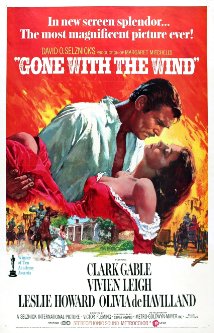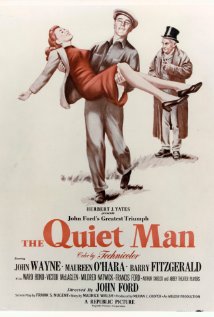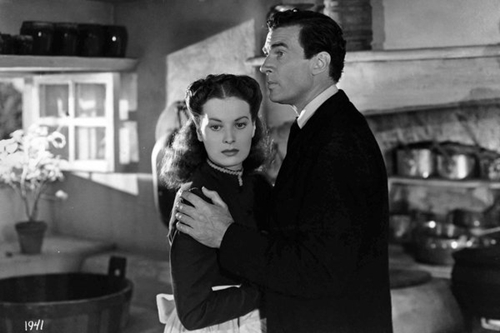By Film Noir Blonde and Mike Wilmington
Words that we associate with family: Happy times. Togetherness. Loyalty. Fun. Laughter. Pure love. Film noir.
Film noir? Yup, film noir. This dark and cynical genre was surprisingly well represented at this year’s TCM Classic Film Festival, which was dedicated to the theme: “Family in the Movies: The Ties That Bind.”
Families, at their best, give us solace and joy. At their worst, they tear us apart. Both extremes showed up at the fest, from “How Green Was My Valley” on the sunny side to “Whatever Happened to Baby Jane?” on the stormy, noir edge.
Other noir highlights were “Double Indemnity,” “The Thin Man,” “Touch of Evil,” “The Naked City,” “Freaks,” “The Lady From Shanghai,” “Johnny Guitar” and “The Godfather Part II.”
 This year marked the fifth annual edition of one of the world’s great (and certainly one of its most lovable) film festivals. During its four-day run, hosted by TCM’s Robert Osborne and Ben Mankiewicz with many special guests, this bounteous cinematic fest became a celebration of fathers, mothers, daughters, sons and other blood ties.
This year marked the fifth annual edition of one of the world’s great (and certainly one of its most lovable) film festivals. During its four-day run, hosted by TCM’s Robert Osborne and Ben Mankiewicz with many special guests, this bounteous cinematic fest became a celebration of fathers, mothers, daughters, sons and other blood ties.
More than 70 movies, including some real masterpieces, were presented at first-rate venues, such as the TCL Chinese Theatres, Grauman’s Egyptian Theatre, Disney’s flagship El Capitan, plus poolside outdoor movies at the Roosevelt Hotel.
Is there any more powerful or moving portrait, for example, of a loving family facing the vicissitudes of life and surviving the relentless march of change than director John Ford’s “How Green Was My Valley?”
 Maureen O’Hara, who played Angharad, appeared on the El Capitan stage, still full of Irish sass and fire. At 93 and feisty as ever, she is our living link to the beauties and treasures of the celluloid past.
Maureen O’Hara, who played Angharad, appeared on the El Capitan stage, still full of Irish sass and fire. At 93 and feisty as ever, she is our living link to the beauties and treasures of the celluloid past.
How green were our valleys then…
Other classic films, all shown in pristine and sometimes newly restored prints, included: “Gone with the Wind,” “The Best Years of Our Lives,” “East of Eden,” “Father of the Bride,” “Hannah and Her Sisters,” “The Quiet Man,” “City Lights,” “Written on the Wind” and “The Wizard of Oz.”
Granted, for movie lovers who prize a happy ending above all else, film noir could be a rebel, a tough child to love. But then just about every clan has at least one black sheep. Isn’t the outcast the one who needs love the most? Isn’t loving the hard-to-love the ultimate test of family bonds? Isn’t that the point of being a family?
Film noir is the cinematic equivalent of a prodigal son or spoiled baby – recalcitrant, yes, but also irresistible. Leave it to film noir to break the rules, steal attention and get its own way whenever it can.











From FNB readers